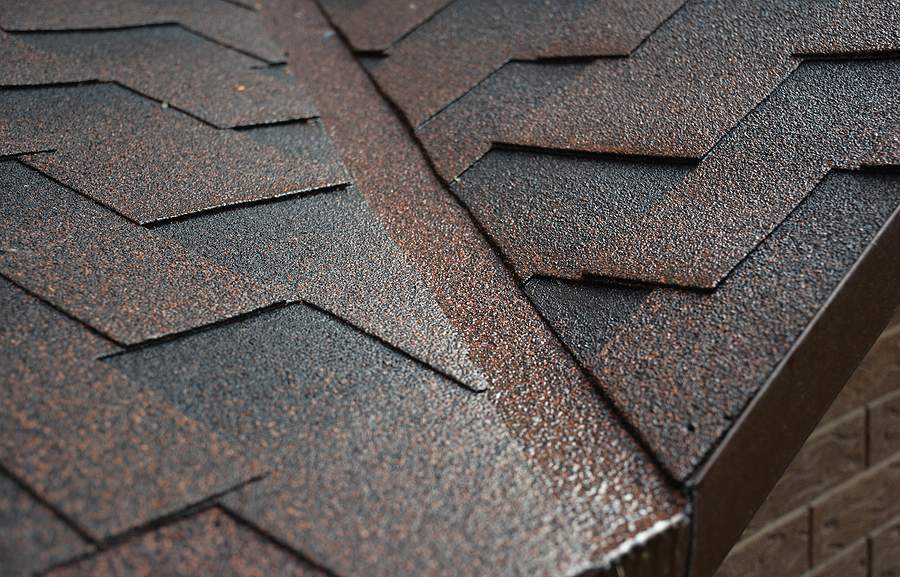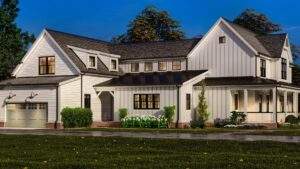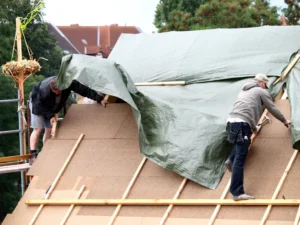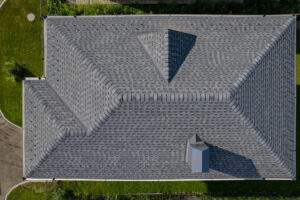Shingles are the most common roofing material used on homes, and for good reason. Not only are they affordable and easy to install, they come in a variety of colors and styles, and last 20 years or more. If you have decided to install shingles on your roof, now you have to decide between asphalt shingles and fiberglass shingles. Let’s talk about the pros and cons of each.
Defining Both
A newer option in the world of roofing, fiberglass shingles are actually a type of asphalt shingles. To distinguish the two, traditional asphalt shingles are known as organic shingles. Both are comprised of a combination of asphalt and other granules.
Organic asphalt shingles have been constructed from a paper material that has been soaked in asphalt and then coated by layers of ceramic granules and asphalt. The term “organic” in reference to these shingles doesn’t mean they’re made of natural materials or are sustainable. This just refers to the non-synthetic material they are made from.
Fiberglass shingles look just like organic asphalt shingles, but rather than having a paper-based mat, there’s a fiberglass base. Fiberglass shingles are lighter than organic due to the presence of less asphalt material. There is no difference in the installation technique or final appearance.
Pros: Fiberglass Shingles
There are several benefits to incorporating fiberglass shingles on your home:
- Better insulation: The layer of glass fiber boosts heat resistance, which increases their insulating factors as well.
- Moisture and fire resistance: These provide better protection over the paper-based material, preventing moisture from getting into your home as easily. In addition, fiberglass shingles are better for fire proofing due to the lack of a paper-based material.
- Strength: While thinner and lighter than organic shingles, fiberglass won’t dry out or change shape.
- Value: They cost the same as organic shingles yet last longer, giving you more for your money.
- Environmental Impact: Fiberglass shingles are recyclable as construction materials, are easier to transport due to their light weight, and use less asphalt to make and design.
Cons: Fiberglass Shingles
There are also a few drawbacks to fiberglass shingles you should be aware of.
- Wind: Because they are thinner and lighter than organic shingles, they can blow off in strong wind storms.
- Cold: Extreme low temperatures make fiberglass brittle, as opposed to organic shingles which are more durable thanks to the high amount of asphalt they contain. Repairing or installing fiberglass shingles in the cold can be difficult.
- Durability: Fiberglass shingles aren’t as durable due to their lack of ruggedness and weight.
- Appearance: Appearance can diminish over time when the alkaline materials start to attract algae.
Pros: Organic Shingles
Here are some good reasons to choose organic asphalt for your roof.
- Durability: While both types of shingles last 20 years or more, the thicker layer of asphalt on organic shingles means they’re more durable. In harsh climates, the heavier asphalt shingle holds up better and won’t be displaced with severe storms.
- Appearance: Organic shingles won’t diminish in appearance over time like fiberglass ones can.
Cons: Organic Shingles
Organic shingles also have their share of drawbacks.
- Prone to Fire Damage: Organic paper bases are not as fire-resistant as fiberglass shingles, and have a lower fire class rating.
- Prone to Warping: The paper backing will absorb moisture, which fiberglass won’t. This can lead to warping, as well as faster algae, mold and fungus growth.
Contact Allstar Construction for Roofing in Fargo
Here at Allstar Construction, we have several years of experience installing both asphalt and fiberglass shingle roofs on homes throughout the Fargo area. To learn more contact us or call (701) 315-8150.






